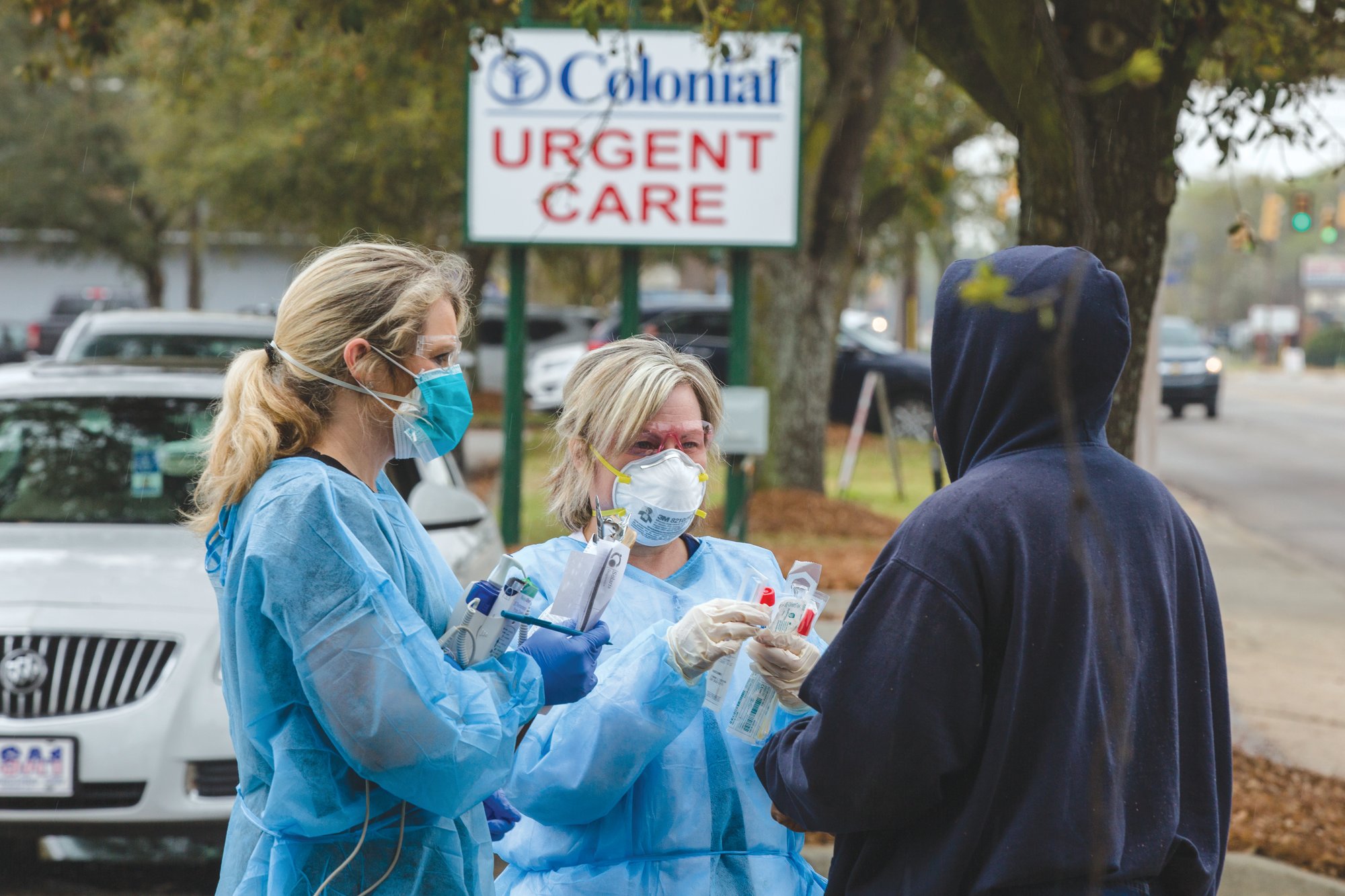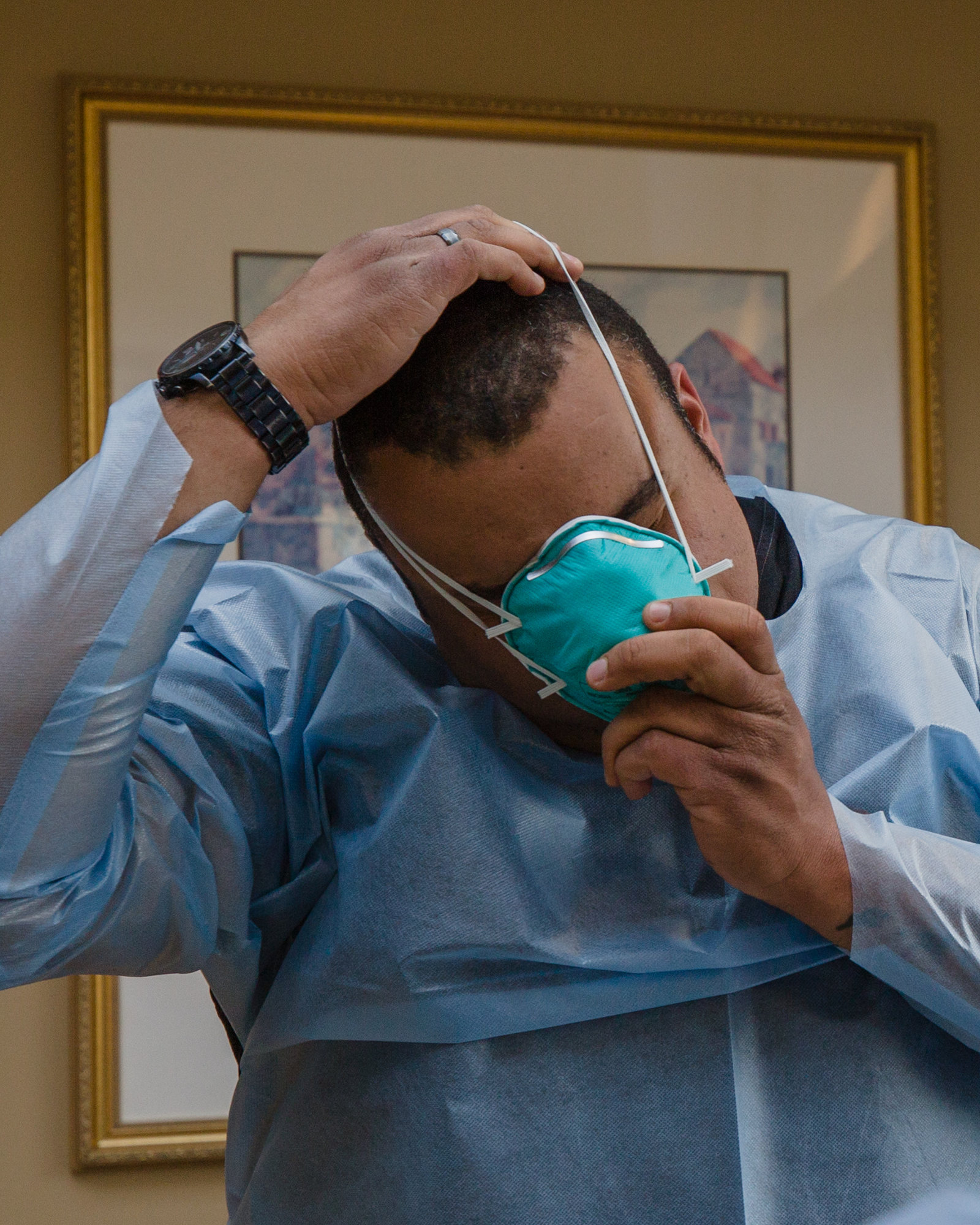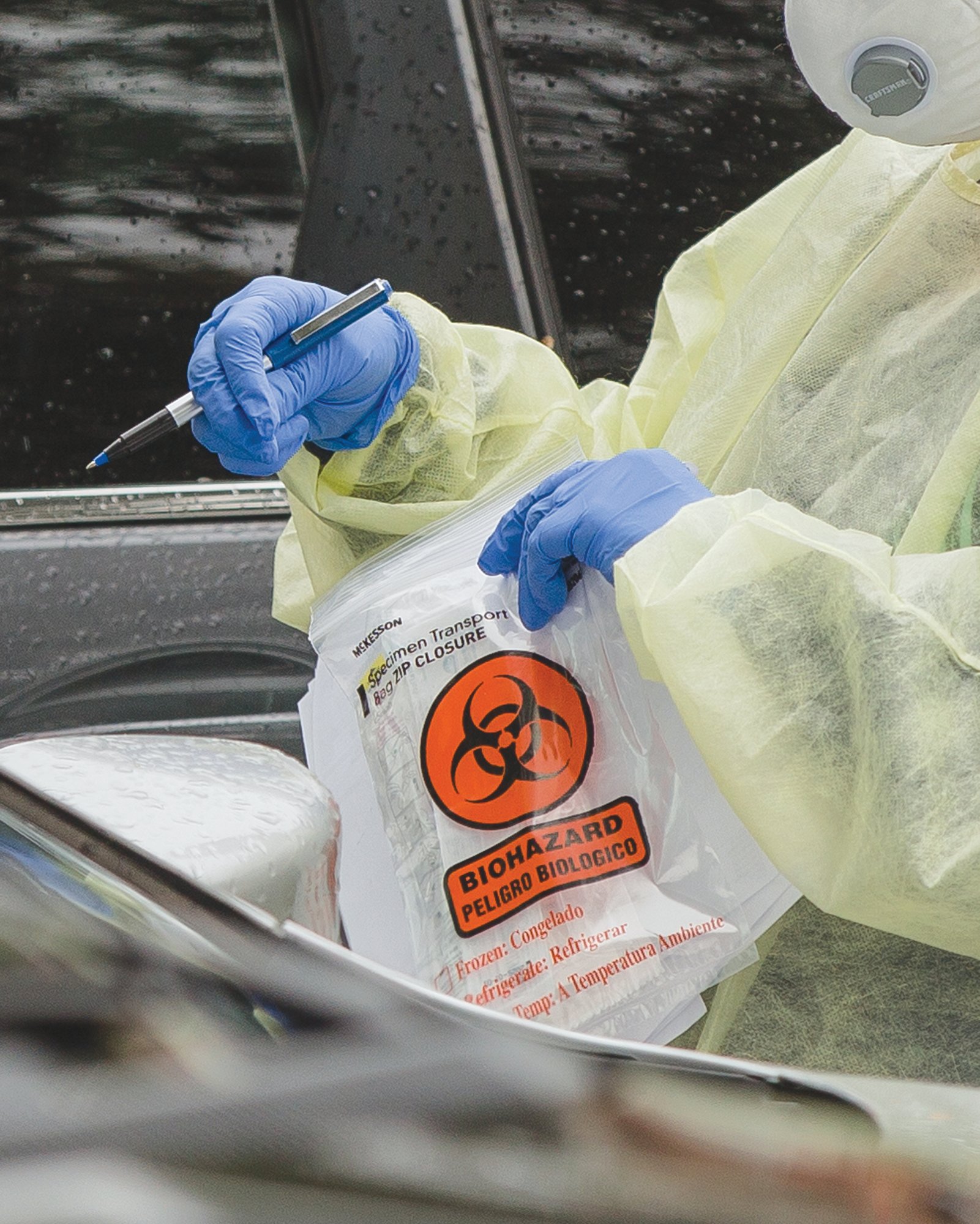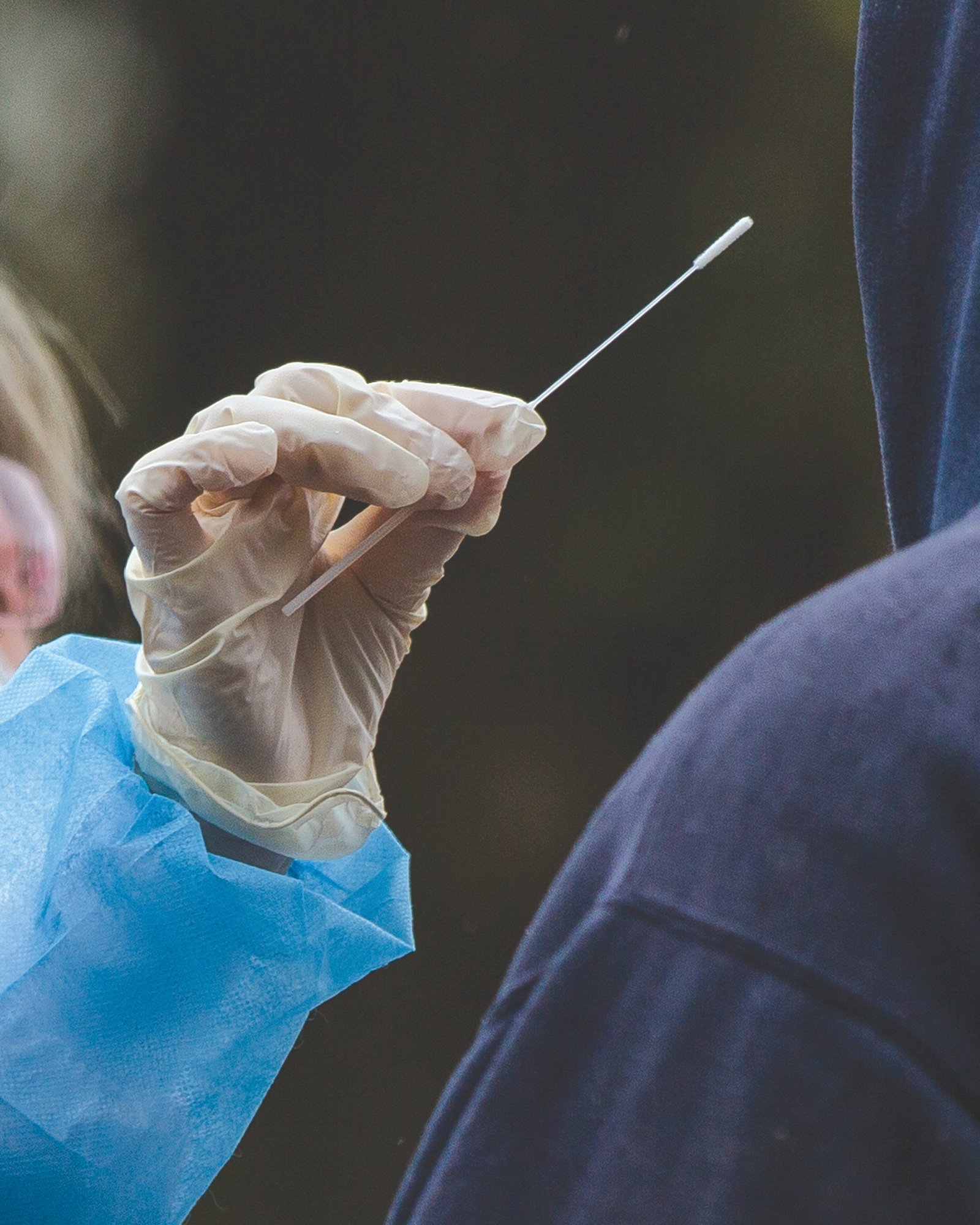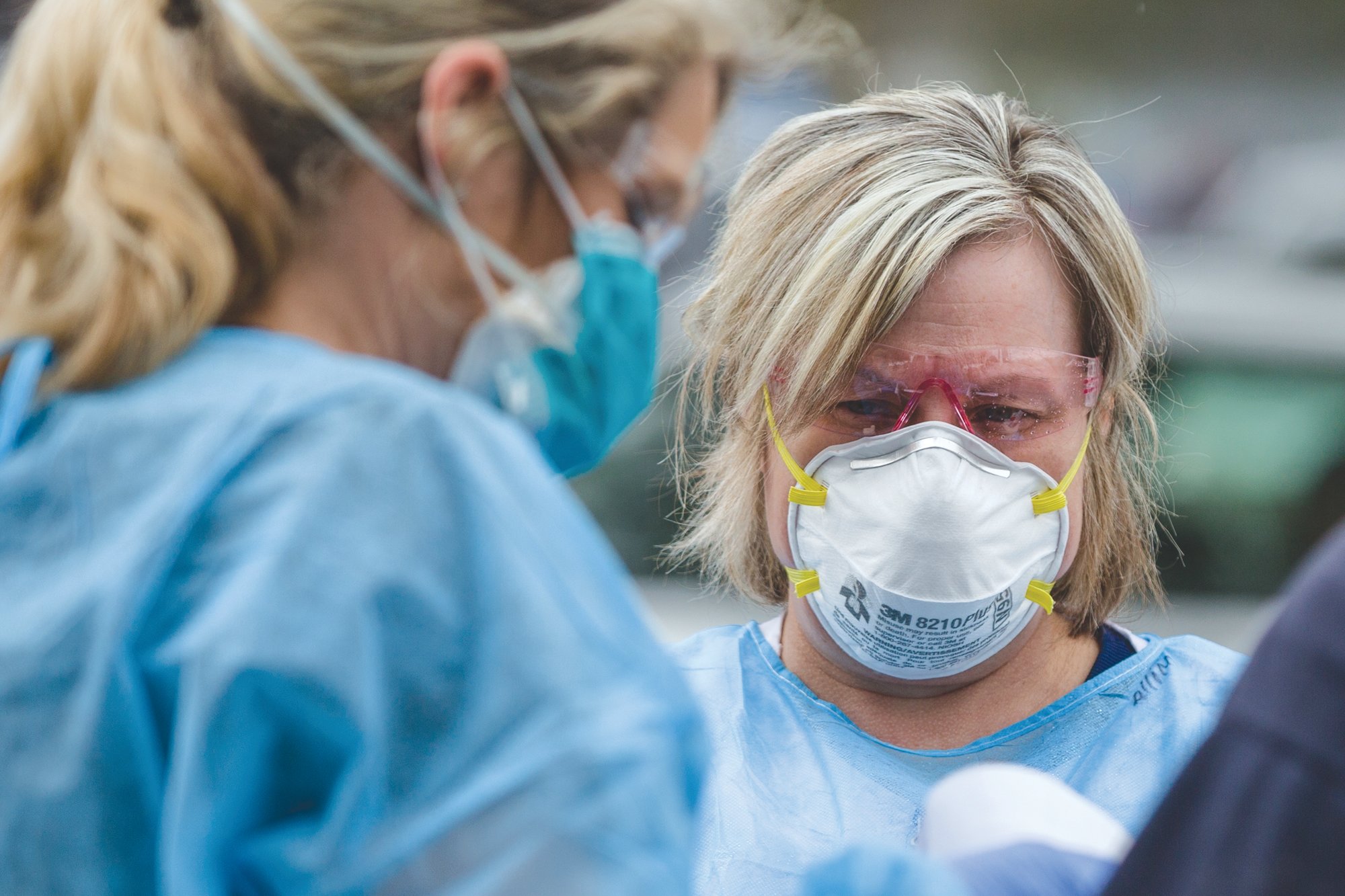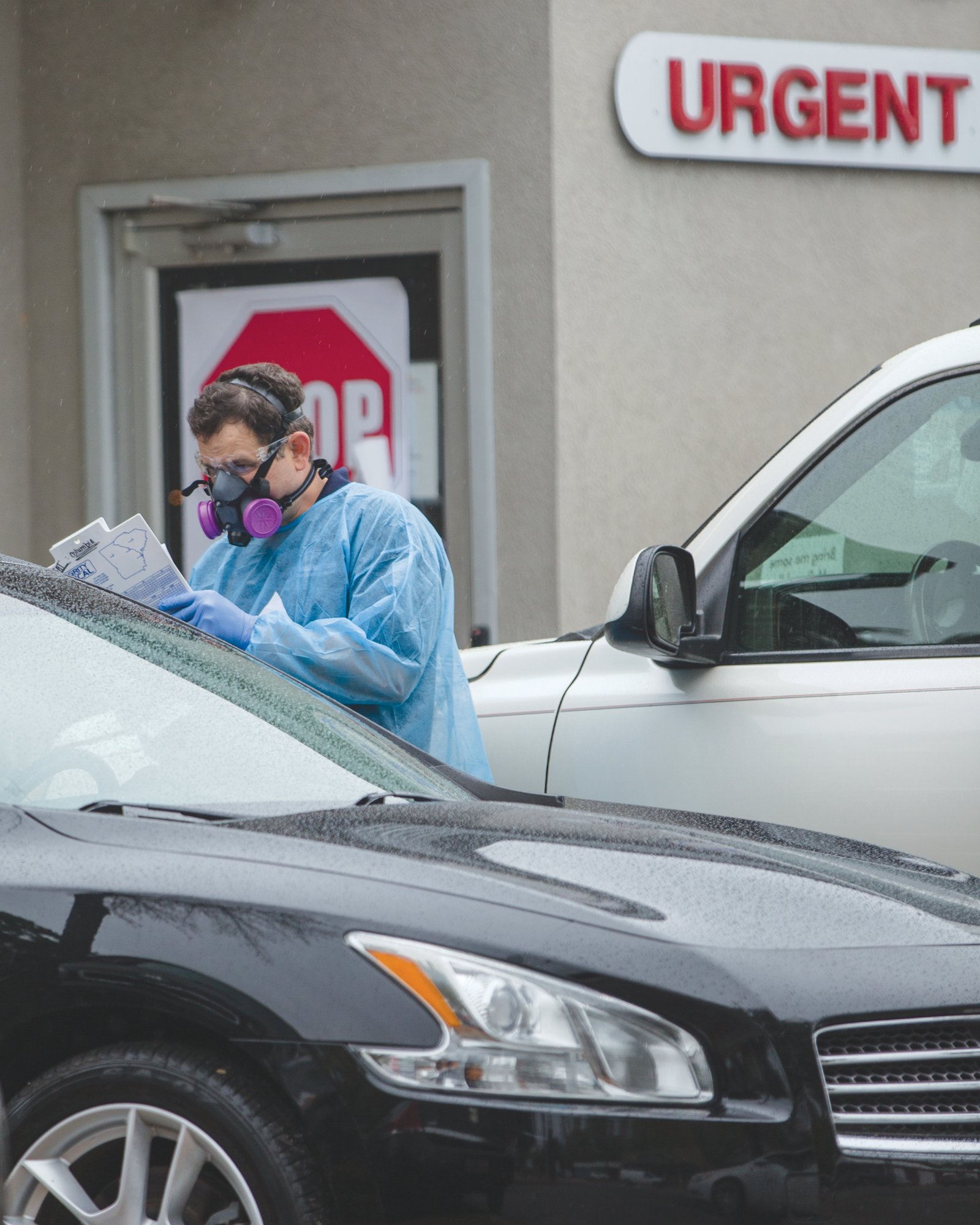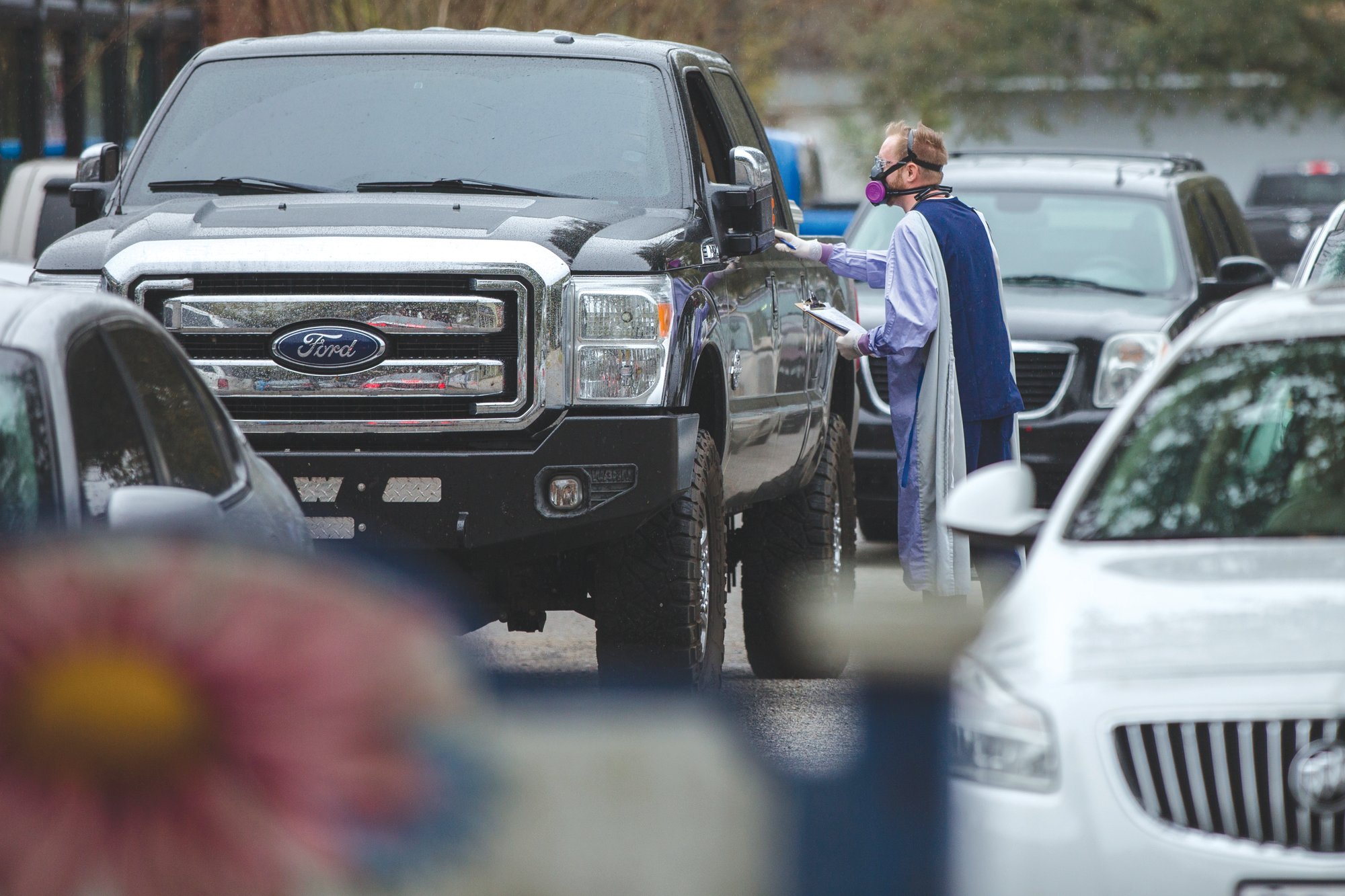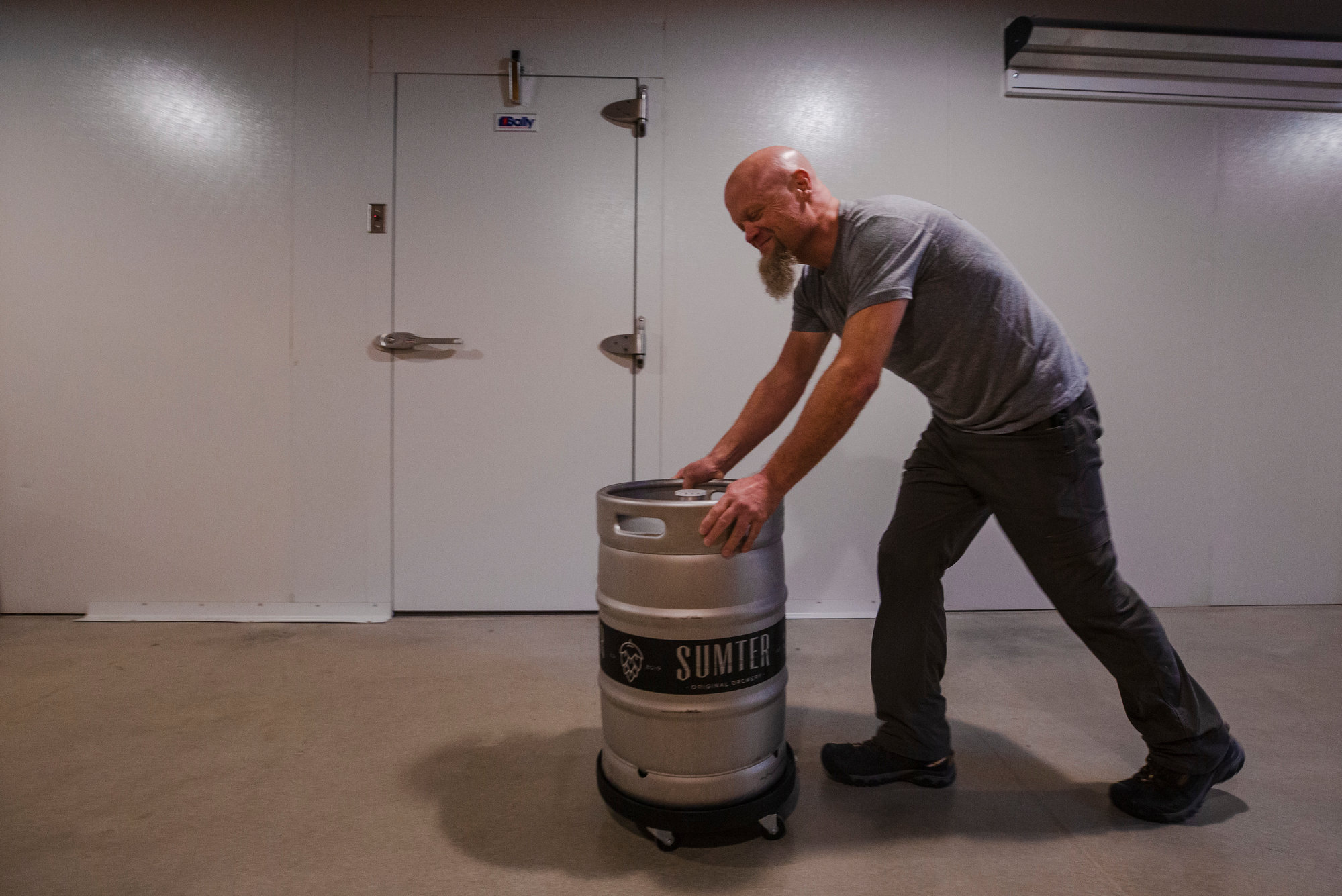Gatherings of 3 or more prohibited in South Carolina, excludes 'common-sense groups'
171 new cases, 4 deaths in S.C. announced since press time Friday
Sumter School District will be delivering breakfast and lunch through its snatch-a-snack process through Tuesday, March 24.
Meals can be picked up, one or two at a time, in the pick-up area of each school between 9 a.m. and 1 p.m.
According to the district, buses will deliver meals starting at 10 a.m. to the following areas: New Bethel Church, Pack Road, Crescent Mobile Homes, American Mobile Homes, DeLaine Community Center, Rembert Post Office, Rembert Community Center, Sherwood Forest, Pisgah Crossroads, Wedgefield Post Office, Shiloh Community Center, Mayesville Post Office, Catchall Center, Ebenezer Center, Frierson Mobile Homes, Windsor City, Birnie Hope Center, South Hope Center, North Hope Center, Jehovah Center, Trinity Baptist Church, Salterstown Center, Iris Winds and Dillon Park.
Information regarding the distribution of meals for the rest of the week will be communicated as they develop.
If students or parents need technology support, call (803) 469-6900, extensions 406, 116 or 137, between 8 a.m. and 4 p.m. Monday through Friday. For IT support in Spanish, call extension 211.
If you encounter a technology issue after 4 p.m. or over the weekend, email a short description of the problem and a call back number to studentsupport@sumterschools.net.
Teachers are available to students during normal school hours, and school offices are open from 9 a.m. to 1 p.m. to assist with questions.
Sumter's Historic Preservation Design Review Committee meeting scheduled for March 26 has been postponed.
Shaw Air Force Base is only conducting risk-balanced operations. Only active duty, their dependents and those who work on Shaw can get on base. Retirees with a medical appointment/emergency and delivery workers still have access.
The Shaw AFB BX Pharmacy is closed until further notice. Information about prescription transfer or delivery service is available at the link to the official Shaw AFB website, or call (803) 895-6464 / 1309 / 6466 / 6125.
The Shaw AFB bowling alley and golf course are closed until further notice.
MUSC Health is following these further visitor policies:
- For adult patients (University Hospital, University Hospital Extension and ART), visitors are not permitted in the building unless the physician feels a patient is at the end of life. At that time, a family member, friend or other caregiver will be contacted to be at the bedside. No more than two of these individuals may be present at a time. Exceptions may be made by hospital administration based on ongoing patient safety needs. Daily screening will continue to take place at designated hospital entrances.
- For pediatric patients and patients in labor (MUSC Shawn Jenkins Children's Hospital and Pearl Tourville Women's Pavilion), only two parents, legal guardians or caregivers at a time will be permitted at the bedside with their child. No other family members will be permitted into the hospital or allowed to visit. For pregnant mothers, one significant other will be permitted to enter the hospital or be at the mother's bedside.
All City of Manning facilities, excluding the Manning Police Department, are closed to the public. This includes all city-operated public parks.
Parlor Darling Salon LLC, 1087 C. Alice Drive, Sumter, is closed. They hope to reopen April 7. Call (803) 883-4363 with questions.
Bank of Clarendon branches in Manning, Santee Summerton and Sumter will be offering drive-through banking only, until further notice. Financial services will be temporarily suspended at the Wyboo branch. Customers can contact their nearest branch for assistance with accessing safe deposit boxes or loan services.
Skate Station of Sumter has paused all operations.
All Sumter County buildings will be closed to the general public beginning Monday, March 23. County employees will still report to work. Services will be provided through online portals, over the phone or by U.S. Mail. First try to conduct business online and then call the department if needed.
A Clarendon County resident is among two more people who have died from the novel coronavirus called COVID-19 in South Carolina, bringing the total deaths in the state to five among 298 total cases in 34 counties. The S.C. Department of Health and Environmental Control announced the deaths Monday afternoon just before Gov. Henry McMaster took the podium for a news conference. DHEC reported both patients were elderly, and both had underlying health conditions. The other patient was from Kershaw County. "We must continue to do all we can to protect ourselves and those around us, especially those at higher risk for developing severe illness from the virus," State Epidemiologist Dr. Linda Bell said. "Based on our data as well as the data shared by other states and other countries, we, in South Carolina, should expect to see the number of positive cases continue to increase. This disease is here, it's in our communities, and we all have a part to play in helping to stop the spread of it." A total of 103 new cases were announced Monday. A dependent of an active-duty airman who is stationed at Shaw Air Force Base in the 20th Fighter Wing has tested positive for the virus off-base. According to Shaw, the individual and spouse are in isolation at their off-base residence. Public health officials have begun the contact tracing process to notify those who may have come in contact with the individual. The airman was tested Monday and will not return to duty until cleared by a medical professional. There are now four cases in Clarendon County. Kershaw County has remained with the highest number of positive cases. As of Monday, there were 54. The first three deaths were in Lexington, Charleston and Florence counties. There are 17 cases in Lexington, 31 in Charleston and three in Florence. The second and third deaths were announced on Saturday. Both were also elderly patients with underlying heath conditions. DHEC reports cases by the patient's county of residence. Sumter County currently has four cases, while Lee County has two. Bell said during the news conference Monday an infant is among the cases who have tested positive. Bell said Monday afternoon residents living in areas where there have been no or low numbers of confirmed cases have fallen into a "false sense of complacency" and are not adhering to social distancing practices as strictly as they should. The state health department continued to urge all South Carolinians to continue practicing health and safety measures including social distancing, staying home, washing your hands often, covering your cough and cleaning commonly touched surfaces. "We must all assume we have the virus," McMaster said. Just after the two additional deaths were announced, McMaster said in a news conference that all plans are still on the table, including a potential "shelter-in-place." Just short of that, he announced Monday an Executive Order allowing law enforcement agencies to disperse gathered groups of three or more they think may be a public health and safety threat. Violations can be deemed criminal misdemeanors. McMaster said places where this order may be carried out include public places such as shopping center parking lots, beaches and any other spontaneous gatherings. The statute excludes homes and "law-abiding businesses and employees." Hospital beds cleared up The governor said hospitals and health care facilities have cleared up space and prioritized patients. There are now 56% more beds available than there were on Tuesday. Because physicians and patients have chosen to postpone elective procedures, there are 1,819 more beds open, according to the governor. Public school spring state testing nixed It's now official, public schools in South Carolina will not have spring state testing this year. On Monday, the state Department of Education announced in a news release that the U.S. Department of Education had approved its suspension waiver that was submitted last week in the wake of the COVID-19 pandemic. "The suspension of South Carolina's student assessments will allow educators to focus on meeting the needs of students and relieve undue anxiety faced by parents and students," State Superintendent of Education Molly Spearman said. "Our efforts must be concentrated on addressing this unprecedented public health pandemic. I appreciate the U.S. Department of Education recognizing this and swiftly approving our waiver request." State tests that will not be administered this spring include SC READY, SCPASS, End-of-Course exams in English, algebra, biology and U.S. history, prekindergarten assessments and alternative assessments, according to the release. Regarding college entrance exams, college credit and workforce readiness assessments, the state department said it's working closely with those vendors to explore innovative approaches, such as testing online. These assessments include the SAT, ACT, Advanced Placement and WIN Ready to Work. "To the extent possible, districts may administer these assessments to students who need them for post-secondary or employment aspirations," the release said. The state will continue to pay for these particular assessments, if they are made available. Supplies delivered to all 46 counties On Saturday, DHEC reported the state has requested its full allocation of medical equipment from the Strategic National Stockpile to help health care providers responding to COVID-19. DHEC received its first shipment this week. The 55 pallets in the initial shipment contained N-95 masks, face shields, surgical masks, gowns and gloves. Additional shipments may continue during the next three weeks. U.S. Army National Guard soldiers with the 59th Troop Command, South Carolina National Guard and U.S. Air National Guard airmen with the 169th Logistics Readiness Squadron, South Carolina National Guard, loaded the personal protective equipment and other supplies on Friday to be transported and distributed to all 46 counties in the state. Restaurants can now sell beer and wine to go To help the food industry survive shutdowns spurred by the coronavirus pandemic, restaurants now can sell beer and wine to-go. Gov. Henry McMaster issued the Executive Order on Saturday, March 21, allowing the state Department of Revenue to waive regulations that paved the way for the sale of sealed containers of beer and wine for curbside pick-up and to-go orders. The order does not authorize or apply to open containers or delivery services. He ordered restaurants and bars to close their in-house dining areas last week, with eateries transitioning to only take-away services starting Wednesday, March 18. The order also directed the revenue department to conform the state's income tax deadline to July 15, which is the new federal income tax deadline. Other state taxes will remain delayed until June 1, as previously ordered. State urges construction companies to donate respirators to health care facilities McMaster also asked for construction contractors and others in the skilled trade industry to donate any personal protective equipment they can spare to health care professionals and state agencies, including respirator masks commonly used in construction settings. Those willing to donate equipment should contact Mary Louise Resch of Habitat for Humanity for logistical coordination via email at mlresch@habitatsc.org. McMaster said Saturday that more than half of South Carolina's state employees are working from home. As of Friday, the day after he issued an Executive Order to keep non-essential employees home, the state Department of Administration reported that for 52 of 74 state agencies there were 13,902 state employees working from home or taking leave. There were 11,411 state employees at work. He said Saturday that all plans and contingencies remain on the table. "That includes 'shelter-in-place,' a drastic action that other states with larger population centers have taken," he said. "It is my hope that this will not be necessary here, and I believe it to be much less likely, as long as South Carolinians follow official instructions and take recommended precautions now."
More Articles to Read

